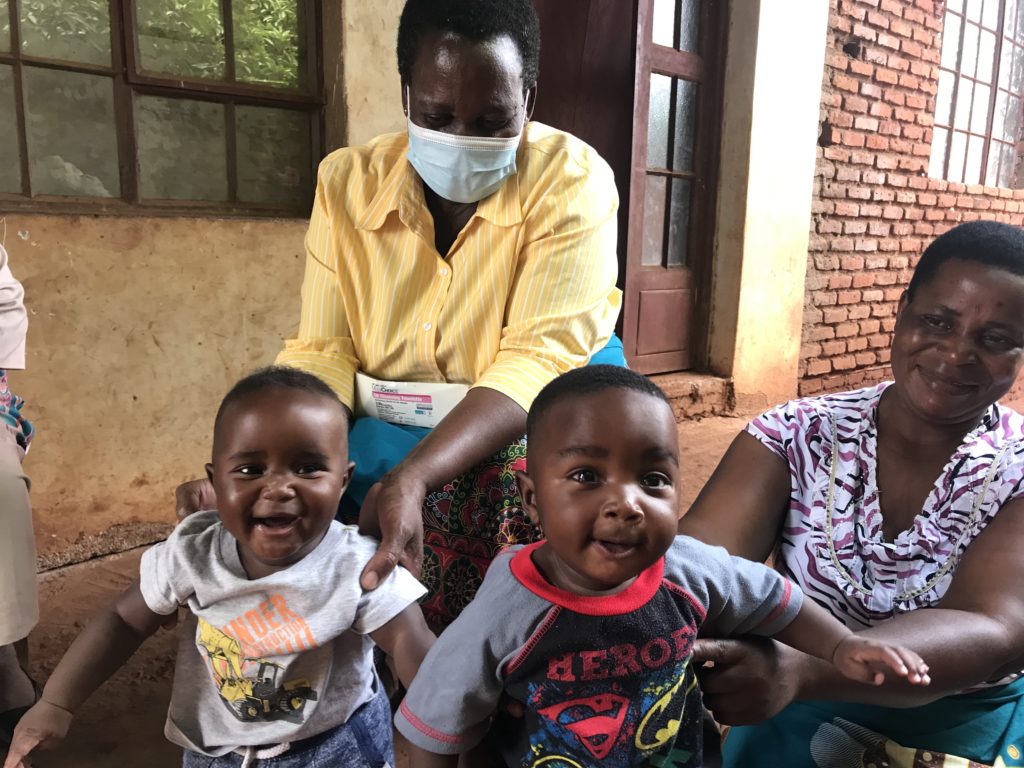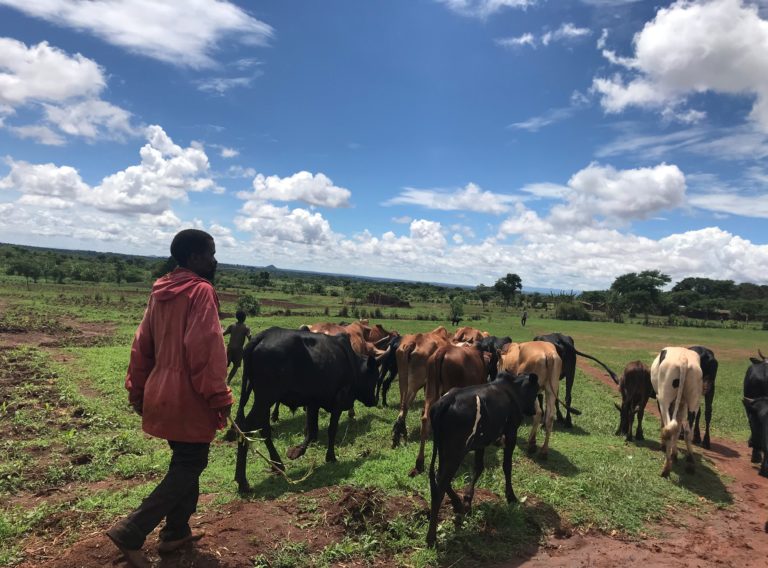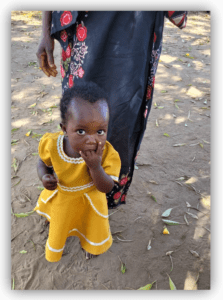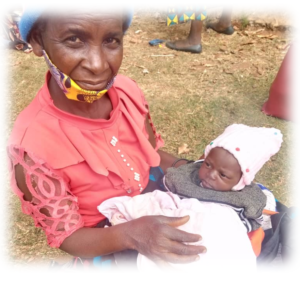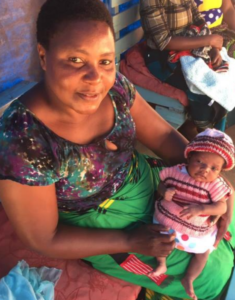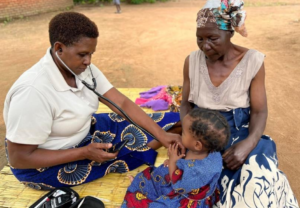I’ve always found colors to be more vibrant in Malawi, particularly in rural areas. As we drive away from town, I touch my face to see if the effect is from my glasses, but I am wearing none. Perhaps it is the humidity or a horizon where earth touches sky and buildings rise from the fabric of the land. Red earth births red bricks, which are topped with thatch and the occasional tin roof reflects sun and sky. Along the road, a string of kiosks, simple thatched shelters, their hand-painted signs distinguishing one from its neighbors. “Dine Fine.” This morning a young woman peers into a pot and stirs in her roadside café. The rains are late, but they have arrived, and from a distance the damp earth seems to bear its first fruit – bright colors are grouped together among the tilled rows. Men and women – mostly women – in vibrant prints, bend at 90-degree angles with hoes raised then thrusting downward. A landscape of sienna and green against a blue-purple sky. Six bunches of bright green lettuce stand alone in the open window frame of a small teal-painted village store. A woman’s red skirt catches my eye from where she stands in a field of black soil. Men herd cattle and swat at two bulls whose flaring tempers blind them to their surroundings. As they butt heads one suddenly shoves the other into the road. Our driver swerves in time and chuckles. The beguiling beauty leads your mind’s focus away from the poverty. This is a season of hunger. Food stores are low and without irrigation all hopes rise upwards, coalescing in the heavy clouds. Perhaps hope alone becomes heavy, each thought a particle drawing in moisture and culminating in the thunderous precipitation.
Today we visit five homes, six orphans, and their aunts and grandmothers who care for them. Down a dirt road we stop in a rural trading center. (Trading centers are areas along a main road – some paved many not – with a few shops and sometimes electricity.) The first home is set back a few feet from the road in a cluster of buildings. We enter and sit on a grass mat. The only other items within the 6 x 8ft room are the items for the baby that we previously provided (a thermos for clean water, a bucket to keep the cup and spoon, and a tin of formula). Through an open doorway, I see into the other room in the house. It is no larger than the room we are in. I see stacked bags in the shadows, likely containing the family’s clothing and food. Like the homes of all of those in our programs, there is no running water here, no toilet, no kitchen. The woman who joins us on the mat and unwraps a baby from her back is the grandmother. She looks no older than 40. The baby, now four-months old, was the first born of her 18-year-old daughter who died in childbirth. The young grandmother has three school-age children who are not in school because she has no money for school fees. Her husband died last May, and she now rents this tiny house, earning money by washing clothes. Nurse Verina chats with the grandmother, asking about their situation and the baby’s health. Verina’s energy is warm and the grandmother’s receptive. Verina assesses the baby and gives more formula. The grandmother expresses her gratitude, and then we leave.
Next we visit Chikondi. He weighed just under 3lbs at birth. His mother and twin brother died during the birth and his grandmother was so fearful that he would die in her care that she begged Verina to take him. Verina says that in the early days, they would have the same conversation at each visit and she would have to repeatedly assure the grandmother that she was capable and that we would support her. Today he is 19-months old. He is walking, and his grandmother playfully tells Chikondi that his grandmother Verina is here to see him.
We visit Chisomo whose grandmother meets us in another trading center. Verina says the house is very far away so they only occasional visit in the home. Chisomo is eight months old, she is still taking some formula but should be eating food at home as well. Her hair is thin and Verina asks what they ate before leaving today. Chisomo’s grandmother says there no food in the house and asks for K200 ($0.25) to buy a little. Verina checks Chisomo’s inner eyelids, notices she is a bit pale and asks if there is a mosquito net in the home. (Malaria is a major cause of childhood anemia in malaria-endemic countries.) The grandmother says there is not. Mosquito nets are often distributed for free at health centers, but frequently they wear out before next distribution date. I hand the grandmother money for food and for a net. Verina gives them formula and porridge and we leave.
We visit Julie who is being cared for by her father and paternal grandmother and then Ganizani and his grandmother. Our day ends on the front porch of an aunt with her beautiful twin nephews. What is clear at the end of the long day is that we are not coming close to solving all the problems of the families in our programs. But, we are ensuring the survival of their most vulnerable members. Care is provided with deep compassion and respect. And when hope is reignited, its natural companions, joy and gratitude follow.
